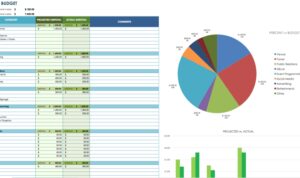Freelancing Tips and Tricks takes center stage, inviting you into a world of self-employment mastery. Get ready to dive into the ins and outs of freelancing with a fresh perspective that’s as cool as a high school hipster.
Ready to unlock the secrets to success in the freelancing world? Let’s explore the tips and tricks that will take your freelance game to the next level.
Introduction to Freelancing
Freelancing has become a popular way of working in today’s economy, allowing individuals to offer their skills and services to clients on a project-by-project basis. This type of work arrangement provides flexibility, autonomy, and the opportunity to work with diverse clients from around the world.
Benefits of Freelancing
- Flexibility to set your own schedule and work from anywhere.
- Opportunity to work on projects that align with your interests and skills.
- Potential for higher earning potential compared to traditional employment.
- Ability to work with clients from different industries and build a diverse portfolio.
Growth of Freelancing
Freelancing has seen significant growth globally, with more people opting for this flexible work arrangement. According to a survey by Upwork, the freelancing industry is estimated to grow to 50.9% of the total workforce by 2027.
Types of Freelance Work
- Graphic Design: Creating visual content for businesses and brands.
- Writing and Editing: Producing written content for websites, blogs, and publications.
- Web Development: Designing and building websites and web applications.
- Marketing and Social Media Management: Promoting businesses and managing online presence.
Setting Up Your Freelance Business: Freelancing Tips And Tricks
Starting a freelance business is an exciting venture that requires careful planning and organization. Here are some essential tips to help you set up your freelance business successfully.
Creating a Professional Freelance Profile
- Choose a professional profile picture that reflects your brand and showcases your personality.
- Write a compelling bio that highlights your skills, experience, and expertise in your chosen field.
- Include samples of your work to demonstrate your capabilities to potential clients.
- Optimize your profile with relevant s to increase your visibility in search results.
Determining Your Freelance Rates and Pricing Strategies
- Research industry standards and competitor rates to determine a competitive pricing structure.
- Consider your experience, expertise, and the value you provide to clients when setting your rates.
- Offer different pricing packages to cater to clients with varying budgets and needs.
- Regularly review and adjust your rates based on market trends and feedback from clients.
Building a Strong Portfolio
- Showcase a variety of projects that highlight your skills and expertise in different areas.
- Update your portfolio regularly with your latest work to keep it fresh and engaging for potential clients.
- Include client testimonials and feedback to build credibility and trust with prospective clients.
- Create case studies that detail your process and results to demonstrate your problem-solving abilities.
Creating a Contract Template for Client Agreements
- Consult with a legal professional to create a comprehensive contract template that protects your rights and Artikels client expectations.
- Include details such as project scope, timelines, payment terms, and intellectual property rights in your contract.
- Ensure both parties sign the contract before starting any work to establish a clear understanding of the project requirements.
- Regularly review and update your contract template to reflect changes in your business practices and legal requirements.
Finding Freelance Opportunities
In the competitive world of freelancing, finding opportunities to showcase your skills and secure projects is crucial for success. Here are some strategies to help you navigate the freelance market and land new clients.
Exploring Freelance Platforms
- Platforms like Upwork, Freelancer, and Fiverr are popular choices for freelancers to find work across various industries.
- Create a compelling profile highlighting your skills, experience, and portfolio to attract potential clients.
- Regularly browse job listings, submit proposals, and showcase your expertise to stand out among the competition.
Networking Strategies, Freelancing Tips and Tricks
- Attend industry events, conferences, and meetups to connect with potential clients and build relationships within your niche.
- Utilize online networking platforms like LinkedIn to showcase your work, engage with industry professionals, and expand your network.
- Collaborate with other freelancers and businesses to tap into new opportunities and referrals.
Utilizing Social Media and Online Presence
- Establish a strong online presence by creating a professional website and showcasing your work on platforms like Behance, Dribbble, or GitHub.
- Engage with your audience on social media platforms like Twitter, Instagram, and Facebook to promote your services and attract potential clients.
- Share valuable content, industry insights, and success stories to position yourself as an expert in your field.
Leveraging Referrals and Testimonials
- Encourage satisfied clients to provide testimonials and reviews that highlight your skills, reliability, and professionalism.
- Offer incentives for referrals and create a referral program to encourage existing clients to recommend your services to others.
- Showcase positive feedback and client testimonials on your website and social media to build credibility and trust with potential clients.
Managing Freelance Projects

When it comes to managing freelance projects, staying organized and communicating effectively with clients are key. Here are some tips and strategies to help you navigate through your freelance projects smoothly.
Effective Project Management Tools
Utilize project management tools like Trello, Asana, or Monday.com to keep track of tasks, deadlines, and project progress. These tools can help you stay organized and ensure that you are meeting your client’s expectations.
Setting Clear Project Scope and Deadlines
Before starting any project, make sure to define the scope of work clearly with your client. Artikel deliverables, timelines, and milestones to avoid any misunderstandings down the line. Setting realistic deadlines and communicating them clearly will help manage client expectations.
Strategies for Effective Communication
Maintain open and clear communication with your clients throughout the project. Update them regularly on the progress, ask for feedback, and address any concerns promptly. Clear communication builds trust and ensures that everyone is on the same page.
Handling Revisions, Feedback, and Client Expectations
Be open to feedback and willing to make revisions based on client input. Handle revisions professionally and efficiently to show your commitment to delivering quality work. Manage client expectations by setting boundaries, being transparent about your process, and communicating any potential delays or issues.
Financial Management for Freelancers

As a freelancer, it’s crucial to have a solid grasp on your finances to ensure long-term success and stability in your business. Effective financial management involves budgeting, managing cash flow, invoicing, tracking expenses, handling taxes, saving for retirement, and creating a financial buffer to deal with irregular income.
Budgeting and Cash Flow Management
- Set a monthly budget outlining your income and expenses to track your financial health.
- Manage your cash flow by monitoring your income and expenses regularly to avoid financial pitfalls.
- Allocate funds for taxes, savings, emergency funds, and business expenses within your budget.
Invoicing and Expense Tracking
- Send out invoices promptly with clear payment terms to ensure timely payments from clients.
- Track all business expenses, including supplies, software subscriptions, and any other costs related to your freelancing work.
- Use accounting software or apps to streamline the process and keep accurate records of your finances.
Tax Management
- Understand your tax obligations as a freelancer and set aside a portion of your income for taxes.
- Consider working with a tax professional to ensure compliance and maximize deductions for your business.
- File your taxes on time and keep organized records to avoid any potential issues with the IRS.
Retirement Savings and Financial Stability
- Open a retirement account, such as a solo 401(k) or IRA, to save for your future as a freelancer.
- Plan for financial stability by setting financial goals, creating an emergency fund, and diversifying your income streams.
- Consult with a financial advisor to develop a customized financial plan that aligns with your freelancing career.
Creating a Financial Buffer
- Set aside a portion of your income during high-earning months to create a financial buffer for slower periods.
- Adjust your budget and expenses during lean months to maintain financial stability and avoid debt.
- Explore alternative income sources or side gigs to supplement your freelance income and build a stronger financial foundation.




